 |
|
 |
 |
 |
|
The Albums The Singles Compilations The Band The Gigs The Story of Sky Forum Extras Contact Home |
 |
In the history of popular music, a great many groups were born over pints in a pub... However, Sky was no ordinary group. The idea took many years to come to fruition, not over pints in a pub, but over pots of tea at the home of one of the world's pre-eminent classical guitarists, John Williams.
Over the course of the next decade, the four men were destined to work on many more projects together and became friends. After the recording of Travelling in 1978, Williams and Flowers decided to go one step further and form an instrumental rock band, and called in their old mates, who also thought it an excellent idea. Joined by Kevin Peek, a session guitarist and composer from Williams' native land of Australia, the group was formed and all they lacked was a name. It needed to be short and snappy, easily remembered and symbolic of the eclecticism of their intended repertoire, although one of the early contenders was London Pride.
When Williams returned home from his US tour with Julian Bream in October 1978, they made some demo recordings at the CBS studios in London of Westway and
Eventually, the small European label Ariola agreed to take a risk, and in due course, in December 1978, the fivesome booked into a studio at the Abbey Road studios in London. With the control-room expertise of Abbey Road engineers Tony Clarke and Haydn Bendall (who were to remain with the group for the remainder of their career), they recorded a great many transcriptions of various classical pieces and their own compositions.
A single of Cannonball and Tristan's Magic Garden was also released, the latter track not included on the album, although it made an appearance a year later on Sky 2. The single didn't make a dent on the market, but the album rapidly found an audience, went gold in seven weeks and eventually reached platinum status, thanks partially to the
highlighting of Williams' name in all publicity and depending largely on his established fan base. It should also be noted that in June, his unrelated single Cavatina: Theme From The Deer Hunter hit the top of the UK charts and this doubtless further enhanced album sales.
The musical press likes to pigeon-hole new records for reviewing purposes and had trouble categorising this release. Unfortunately, because of his status in the classical world, it fell upon critics more used to judging Williams' classical output to rate the album, and not surprisingly, they were rather taken aback, John Duarte in Gramophone not being in the slightest bit impressed.
At the end of May, the band embarked upon their first UK tour, playing dates in Birmingham, Southampton and Bristol, culminating in a sold-out Royal Albert Hall in London.
Encouraged by the record's sales, in September and October they repeated their success on stage with the 26-date Sky at Night tour around England and Scotland, ending with five sell-out nights at the London Dominion.
After Christmas, the band returned to to the studio to record some of the material they'd been playing on tour, and found that they had rather too much for one LP, so in a rare move at the time, decided that the only solution was to release a double album, and Sky 2 was born.
The album included what was to prove to be the group's only success in the single market, the aforementioned Toccata, which shot straight into the UK charts, eventually reaching No. 6. On the band's first appearance on "Top Of The Pops", BBC TV's flagship chart show, they were introduced with the words: "Five famous classical musicians took one of the most famous pieces of church music. And rocked it".
After a break for the summer, during which the BBC transmitted a recording of the last show from the previous tour, Francis Monkman decided to devote more time to other pursuits, following the success of his soundtrack for the film "The Long Good Friday", and reluctantly left the band. Without any discussion whatsoever, the others decided that there was only person in a position to replace him, Steve Gray, and they undertook their first trip around Europe, including Scandinavia and Germany, followed by their most successful UK tour to date, finishing just before Christmas.
As 1981 dawned, they dreamt up an extra special project...
On 24th February 1981, the day the ill-fated wedding of Prince Charles to Lady Diana Spencer was announced, Sky made the distinctive move of giving the first (and to date, only) concert ever held in Westminster Abbey in London, to mark the 20th Anniversary of Amnesty International, a cause which many of the band members had always supported.
Richard Williams, in his review of the concert for the Times, voiced the general misunderstanding of what the band was trying to achieve. For some reason, because of his own background in the classics, Williams was always to be attempting something meaningful, whereas all he and the other musicians wanted was to enjoy themselves, and give a great many people some fun as well...
The concert was filmed for television and provides the only commercially available video (and laserdisc) recordings of a Sky appearance (BBC V 3017).
The event was the launch pad for the band's latest album, Sky3, released shortly afterwards which was further supported by live appearances in Australia, the UK and Europe during the year, and just in time for Christmas, a box set of the three first albums was released.
All their work to date has included their versions of classical works, and this was something of a departure, consisting exclusively of transcriptions or arrangements of other composers, although only the first four bars of My Giselle were from Adam de la Halle's original ballet.
Sky Forthcoming also contained the worst-accepted arrangement the band ever did, Wagner's Ride Of the Valkyries. In later explanations, Herbie's always insisted that it was a bit of an in-joke, but to be quite honest, I personally don't get it (I understand the explanation, I just don't find the joke particularly amusing, and still prefer to skip the track when listening to the CD...). :)
The album launch, with the marketing slogan Genius Past, Genius Forthcoming was
followed by the inevitable UK tour, and later in the autumn, the band made one of their most extensive visits to Australia, playing a considerable amount of new material written over the summer.
The UK tour was followed by the band's first visit to Japan in the late spring, and in October, the season closed with more dates around Europe and the UK.
Sky had always released their records in the spring or early summer, refusing to jump onto the recording world's bandwagon of trying to gain the lucrative Christmas market (similarly to Williams in his classical recording career). The end of 1983 saw a change to that with the release of what some consider to be the band's best work since Sky 2.
The concerts, and the album itself, were a departure for the group, as for the first time they had a guest on stage, songwriter and singer Patrick Ros, who sang three seasonal compositions of his own, backed by the band. And the album features two tracks written especially for it by a non-member (apart from the obligatory classical reinterpretation, this time Prokofiev's Sleigh Ride from the Lieutenant Kijé Suite.
I read this as a signal that there was a major upheaval brewing in the band's lineup, and true enough, in February 1984 John Williams announced his departure.
Amid speculation that the group were no longer fitting the image he had had five years earlier and a split in the ranks, all parties insisted that the departure was on the friendliest of terms. In fact, in an interview at the time of the band's first major tour (Sunday Telegraph, 16 September 1979), he indicated that he did not intend for Sky to be the central focus of his life for more than five years, so the departure was no big surprise.
He returned to his classical career with a passion (although during his time with Sky it had certainly not lay completely dormant), and despite not appearing with the group since, he has maintained his friendship with its members, and even
commissioned compositions from them...
The band, in the meantime, continued on their merry way...
This was not true, and deciding to remain as a quartet, leaving the fifth seat open for guest appearances, Sky embarked upon another Australian tour at the beginning of 1984, joined on stage by someone who was probably seen by some as the competition at the time of the group's launch, Rick Wakeman.
This was followed in May and June by another UK tour, with guest appearances by Lee Forthergill and Ron Aspery.
The summer saw the release of Sky's first compilation album, Masterpieces, released by mass-marketing giant Telstar, and which saw some return to prominence of the band's work. Those who had bought all of the band's previous output had reason to buy the album as well, as it included the previously unrleased Williams-Peek duo of Leo Brouwer's arrangement of the Beatles' Fool On The Hill, recorded live in Australia.
In September 1984, the band returned to Western Australia, to record their seventh album, The Great Balloon Race in Kevin Peek's own recording studio. While mixing it back in London, the band discovered that Ariola Records weren't particularly keen on Sky without John Williams, and the search was on for another label; the band were taken on by Epic Records, strangely enough a subsidiary of CBS, responsible for Williams' classical output...
The tour featured Nicky Hopkins, a keyboard player best known for his work on almost every Rolling Stones
album and Paul Hart, playing a multitude of instruments, including the violin, cello, various guitars and keyboards. Paul's appearance was to make a serious impact on audiences, and he appeared with the band in all public appearances from that point on.
After a sabbatical in 1986 and much of 1987, the band fulfilled one of drummer/percussionist Tristan Fry's ambitions: to unite the two ensembles in his life: Sky and the Academy of St. Martin in the Fields. For those unaware, The Academy is one of the foremost classical orchestras and are probably most notable to the general public for their work on the soundtrack of the film Amadeus. This is not entirely coincidental, as the collaboration between two two groups was to focus on Mozart's compositions, in arrangements mainly by Steve Gray.
The band then went into hibernation again, except for a one-off appearance at the London Palladium in 1990 and a TV studio concert in early 1991. For these appearances, they did not rest entirely on their laurels (although one of the reasons for the get-togethers was the launch of the first compilation to appear exclusively on CD, Classic Sky). They also presented new pieces by Steve Gray, Paul Hart and Kevin Peek, which have yet to become available on recordings.
Kevin Peek decided that he had too many projects on his hands, between running his own recording studio
and other interests, could no longer afford the luxury of extended trips to the UK
to play with the band. In fact, the majority of his own contributions to the Mozart album were recorded back home in Australia and then mixed in London.
Upon his departure, the group were faced with the choice of either disbanding or finding a replacement, not an easy task after 12 years, or some 15 hours'-worth of original work to be learned...
Between 1991 and 1994 the band's first five albums were released on CD for the first time, and to celebrate the event, the group embarked upon their first UK tour for almost seven years at Easter 1994. They played smaller halls than they had in the past, but this had the advantage at least of almost full venues...
The band's popularity was evidently on the wane, and although, in the spirit of what the group had always been about - a forum for busy musicians to get together and have fun - no formal decision was ever made to disband, but they have not appeared together since.
Which doean't mean that there's been no new product for us to enjoy. After protracted negiotations and arguments, in 2001, the band re-gained control of their back-catalogue, and have entrusted Sanctuary Records with the task of re-releasing it. Thus far, a compilation entitled Anthology has been released, as well as remastered and repackaged editions of the first two albums.
Apart from that, the great news for 2005 is that Quantum Leap have now issued a DVD of the first public gig the band ever played. See here for more information.
|
 |
 In 1971, John Williams released his first non-classical recording, Changes, backed by various session musicians, who themselves all came from a classical background. Among these, were
In 1971, John Williams released his first non-classical recording, Changes, backed by various session musicians, who themselves all came from a classical background. Among these, were 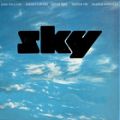
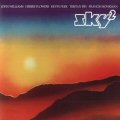
 As the album was being released, the band embarked upon their third tour in May, introducing the Australians to their own brand of music-making, and upon their return to the UK, played a further 16 dates.
As the album was being released, the band embarked upon their third tour in May, introducing the Australians to their own brand of music-making, and upon their return to the UK, played a further 16 dates.
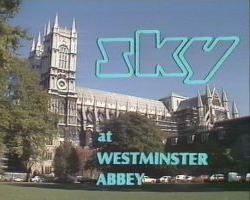
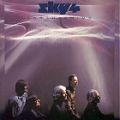
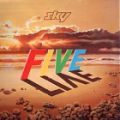
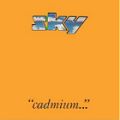
 Williams' departure probably meant the beginning of the end for the group, and for most members of the record-buying public who weren't following the group's activities very closely, the band had probably ceased to exist.
Williams' departure probably meant the beginning of the end for the group, and for most members of the record-buying public who weren't following the group's activities very closely, the band had probably ceased to exist.
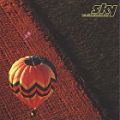
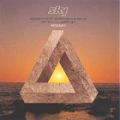
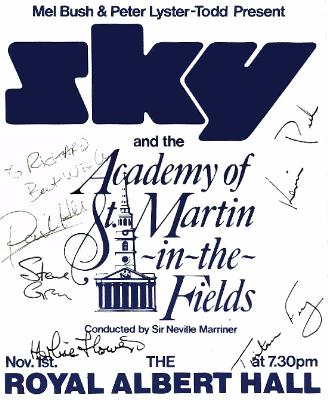 The album's release was celebrated with a one-off concert with the Academy in the Royal Albert Hall on 1st November, and this was to prove the band's last appearance for some time, and the album was the last release of original material.
The album's release was celebrated with a one-off concert with the Academy in the Royal Albert Hall on 1st November, and this was to prove the band's last appearance for some time, and the album was the last release of original material.
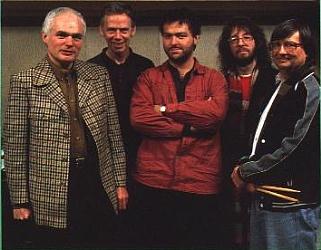 In 1992, the group re-launched with their newest recruit,
In 1992, the group re-launched with their newest recruit,